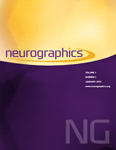
Imaging of Calcifying and Ossifying Disorders of the Spine
Substantial advances in the availability of spinal imaging have led to the increasing use of spinal imaging in the evaluation of patients with neck and back pain. This has resulted in the recognition of a diverse collection of spinal disorders, characterized by heterotopic calcification
and ossification. Despite the increasing frequency at which these conditions are being diagnosed, there still exists a lack of awareness of the imaging characteristics of some of these calcifying and ossifying spinal disorders. Here, we review the imaging characteristics of ankylosing spondylitis,
arachnoiditis ossificans, calcific discitis, calcific tendonitis of the longus colli, calcium pyrophosphate dihydrate deposition, crowned dens syndrome, diffuse idiopathic skeletal hyperostosis, ossification of the ligamentum flavum, and ossification of the posterior longitudinal ligament.
Radiologists and clinicians alike should be familiar with these calcifying and ossifying spinal disorders to aid in an accurate diagnosis and to guide clinical management.
Learning Objectives: Recognize the clinical features and imaging findings of various calcifying and ossifying disorders of the spine.
Learning Objectives: Recognize the clinical features and imaging findings of various calcifying and ossifying disorders of the spine.
Keywords: AO = arachnoiditis ossificans; AS = ankylosing spondylitis; CPPD = calcium pyrophosphate dihydrate deposition; DISH = diffuse idiopathic skeletal hyperostosis; OPLL = ossification of the posterior longitudinal ligament
Document Type: Research Article
Publication date: 01 January 2021
- Access Key
- Free content
- Partial Free content
- New content
- Open access content
- Partial Open access content
- Subscribed content
- Partial Subscribed content
- Free trial content